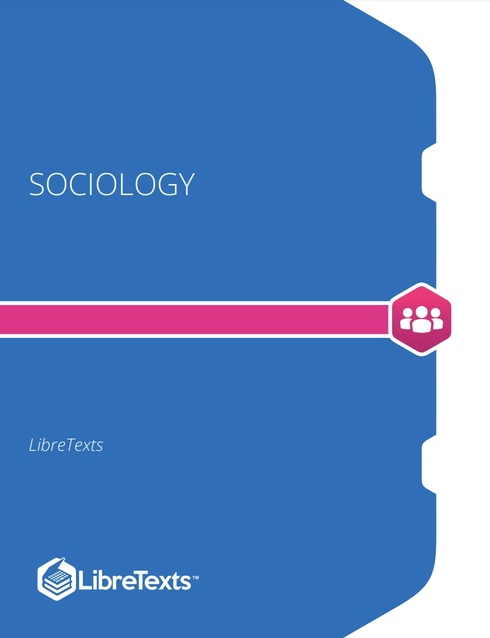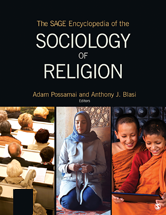
 A Career in Sociology
by
Vera Kennedy
A Career in Sociology was written for introductory undergraduate courses on sociological practice. The book was designed for faculty and students searching for an open educational resource (OER) that provides sociological terms, concepts, and theories in the study of sociological practice. The book contains five modules with sociological applications on: 1) Careers in Sociology, 2) Theoretical Approaches in Practice, 3) Sociological Interventions, 4) Working with Diverse Groups, and 5) Preparing for a Career in Sociology.
A Career in Sociology
by
Vera Kennedy
A Career in Sociology was written for introductory undergraduate courses on sociological practice. The book was designed for faculty and students searching for an open educational resource (OER) that provides sociological terms, concepts, and theories in the study of sociological practice. The book contains five modules with sociological applications on: 1) Careers in Sociology, 2) Theoretical Approaches in Practice, 3) Sociological Interventions, 4) Working with Diverse Groups, and 5) Preparing for a Career in Sociology.
 Exploring Our Social World: The Story of Us: Integrated Workbook Edition
by
Jean M. Ramirez; Suzanne Latham; Rudy G. Hernandez; and Alicia E. Juskewycz
Sociologists teaching an introductory course focus on a wide array of topics, ranging from culture and socialization to institutional structures and stratification. One of the main lessons we impart to our students relates to the effects social inequalities have on our lives, particularly on the goals we establish for ourselves and families, and the structural barriers that serve to prohibit us from reaching these goals. For people who aspire to achieve upward social mobility, earning a college degree is a key means of doing so, however, with the rising costs of college education, access is out of reach for many. Community colleges are uniquely positioned to serve the American public by offering a quality education at a relatively low cost. Many community college professors teach at these institutions because they are invested in offering equitable access to higher education and desire to be part of a system that works toward this goal. To this end, we developed this text for our students because we know that rising textbook costs prohibit some of them from purchasing the materials necessary for their academic success. This text allows us to contribute one small piece to the educational equity puzzle and take one small step closer to social equality.
The Integrated Workbook Edition of this text was conceived of by Suzanne Latham, who felt that the text, coupled with an embedded workbook providing students with opportunities to interact with, reflect upon and recall concepts and theories, would significantly enhance their learning experience and understanding of the field of sociology. In addition to the new workbook element, this edition also includes updates to data and discussion of current issues.
Exploring Our Social World: The Story of Us: Integrated Workbook Edition
by
Jean M. Ramirez; Suzanne Latham; Rudy G. Hernandez; and Alicia E. Juskewycz
Sociologists teaching an introductory course focus on a wide array of topics, ranging from culture and socialization to institutional structures and stratification. One of the main lessons we impart to our students relates to the effects social inequalities have on our lives, particularly on the goals we establish for ourselves and families, and the structural barriers that serve to prohibit us from reaching these goals. For people who aspire to achieve upward social mobility, earning a college degree is a key means of doing so, however, with the rising costs of college education, access is out of reach for many. Community colleges are uniquely positioned to serve the American public by offering a quality education at a relatively low cost. Many community college professors teach at these institutions because they are invested in offering equitable access to higher education and desire to be part of a system that works toward this goal. To this end, we developed this text for our students because we know that rising textbook costs prohibit some of them from purchasing the materials necessary for their academic success. This text allows us to contribute one small piece to the educational equity puzzle and take one small step closer to social equality.
The Integrated Workbook Edition of this text was conceived of by Suzanne Latham, who felt that the text, coupled with an embedded workbook providing students with opportunities to interact with, reflect upon and recall concepts and theories, would significantly enhance their learning experience and understanding of the field of sociology. In addition to the new workbook element, this edition also includes updates to data and discussion of current issues.
 Introduction to Sociology: Understanding and Changing the Social World
by
Anonymous
It is no accident that many sociology instructors and students are first drawn to sociology because they want to learn a body of knowledge that can help them make a difference in the world at large. This text is designed for this audience and aims to present not only a sociological understanding of society but also a sociological perspective on how to improve society. In this regard, the text responds to the enthusiasm that “public sociology” has generated after serving as the theme of the 2004 annual meeting of the American Sociological Association, and it demonstrates sociology’s relevance for today’s students who want to make a difference in the world beyond them.
Introduction to Sociology: Understanding and Changing the Social World
by
Anonymous
It is no accident that many sociology instructors and students are first drawn to sociology because they want to learn a body of knowledge that can help them make a difference in the world at large. This text is designed for this audience and aims to present not only a sociological understanding of society but also a sociological perspective on how to improve society. In this regard, the text responds to the enthusiasm that “public sociology” has generated after serving as the theme of the 2004 annual meeting of the American Sociological Association, and it demonstrates sociology’s relevance for today’s students who want to make a difference in the world beyond them.
 The SAGE Encyclopedia of the Sociology of Religion
by
Adam Possamai (Editor); Anthony J. Blasi (Editor)
The SAGE Encyclopedia of the Sociology of Religion takes a three-pronged look at this, namely investigating the role of religion in society; unpacking and evaluating the significance of religion in and on human history; and tracing and outlining the social forces and influences that shape religion. This encyclopedia covers a range of themes from: * fundamental topics like definitions * secularization * dimensions of religiosity to such emerging issues as civil religion * new religious movements This Encyclopedia also addresses contemporary dilemmas such as fundamentalism and extremism and the role of gender in religion.
The SAGE Encyclopedia of the Sociology of Religion
by
Adam Possamai (Editor); Anthony J. Blasi (Editor)
The SAGE Encyclopedia of the Sociology of Religion takes a three-pronged look at this, namely investigating the role of religion in society; unpacking and evaluating the significance of religion in and on human history; and tracing and outlining the social forces and influences that shape religion. This encyclopedia covers a range of themes from: * fundamental topics like definitions * secularization * dimensions of religiosity to such emerging issues as civil religion * new religious movements This Encyclopedia also addresses contemporary dilemmas such as fundamentalism and extremism and the role of gender in religion.
Central Maine Community College Learning Commons - 1250 Turner St., Auburn, Maine 04210 - Telephone: (207)755-5218
Central Maine Community College is an equal opportunity/affirmative action institution and employer.
For more information, please call (207) 755-5100. [Full Non-Discrimination Notice]